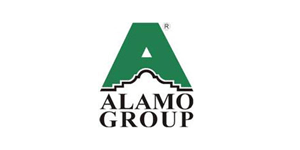City proposing $3 monthly drainage fee

14 Nov 2021
news, City of Seguin
Seguin, TX, USA / Seguin Today
Darren Dunn
New fee helps to create storm water drainage utility
(Seguin) — Seguin officials are moving closer to establishing a new and what they think is a better way to provide funding for drainage projects in the city. The city is proposing the creation of a Storm Water Drainage Utility Fee. The money would be used only for drainage improvements, which are currently now funded by property taxes. The city’s proposal calls for a $3 fee to be charge per lot to create the Storm Water Drainage Utility.
The fee has already received some pushback from the public. Former Seguin City Councilman Jim Lievens was among those raising concerns about the proposed fee. He spoke during a recent council meeting. He called the fee a new tax, and suggested that the city look at the revenue that it already had to pay for these projects.
“What I’m suggesting is that with this increased tax revenue between sales tax and property tax, that surely we can find a way to try to fund this need for the storm drainage fee through our budget and not through a new tax and that’s what I’m asking you all to consider – is to say ‘no’ to that storm drainage fee. At the very least, to at least table the item until you can satisfactorily answer for yourself if not for the community, is this the only way to fund it? Have you explored every possible option in the city budget to fund it? I just think again the idea of a new tax is not an acceptable one to me, anyway,” said Lievens.
Seguin City Manager Steve Parker has stressed for months that creating a Storm Water Utility Fee is the best way to generate the necessary funding to really begin to address the significant drainage problems across the city. He says the drainage problems aren’t just causing flooding problems, but it’s also ruining some city streets.
“Since I started in January 2020, the number one complaint that I have received is in relation to the road conditions of Seguin. As you are aware, the city council is now investing a lot of money for the rehabilitation and maintenance of our roads. We are spending almost $2 million a year in general fund operating money to rehabilitate and maintain our city’s street infrastructure. That won’t be done overnight but it is a plan to do so much every year to make sure that we get to a sustainable road level that we really need to have. That was a commitment by staff and city council to address these citizens’ concerns regarding road quality,” said Parker.
Parker says they hear the concerns being raised, but it would require a significant property tax increase to provide the same level of funding that will be generated by the new fee. He says this is the most equitable way to generate the funds necessary for these badly needed drainage projects.
“The existing city budget does not have the capability to address these drainage shortfalls. Our consultant and staff estimate that it will take about $1.5 million per year in funding to adequately address the drainage issues around our city. To generate another $1.5 million in revenue for the city, this would be almost a six-cent tax rate increase or $60 per year for $100,000 home. Under the Drainage Utility Fee structure, it was initially estimated that each lot would have to pay $5 per month in order to generate $1.5 million in funding per year. Staff and the consultant have (gone) back and looked at growth assumptions and a ramp up scenario for future drainage capital improvement projects and are now recommending $3 a month or $36 per year,” said Parker.
The fee would not be collected until 2023, which would give the city plenty of time to educate the public about its plans. Parker says the $3 per month fee is based on what they think will be needed to begin setting aside revenue for these projects.
“This $3 per month per lot fee will allow us to start the drainage utility. Once this utility is started, we’ll use this additional funding to do a more in-depth analysis of (road) cover in our city. It will allow us to develop a more detailed capital improvement plan and it will allow us to do more maintenance in the interim and possibly enough to do some smaller projects. Once a more detailed CIP plan is developed, we can come back to the council to see if an increase above the $3 is needed due to having better cost projections,” said Parker.
Parker says the drainage issues in the city have caused major problems for drivers in Seguin. He says it’s causing major pothole problems, and they need to find a way to improve the drainage and to protect the integrity of local roadways.
“We are averaging almost 500 pothole repairs over the last three months. Those are all directly related to the amount of rainfall that we have had. These potholes are occurring because we do not have proper drainage. These potholes are not occurring because the roads were not properly installed. Water is the ultimate destroyer of pavement. Water has to be removed from these roadways as fast as possible or in my opinion, we are wasting money on our street maintenance program. Roads that are built to last 20-25 years will only last maybe 10 if a solution for drainage is not found. That is why this fee is so important to the success of our roads,” said Parker.
Parker says increasing the tax rate by as much as six cents is not the best solution to this problem. He says that’s why they are recommending the $3 per month, per lot fee. He says it’s fairest way to begin to address this problem without placing an even bigger burden on local taxpayers.
“Unfortunately, property tax does not cover the cost of city services. We receive about $14 million in property taxes each year. That’s from all commercial, residential, industrial customers in the city — $14 million a year. From that, we take off a $1.5 million because we have to pay for indigent healthcare here at the city and then we also take another $6.7 million away from that because of debt service. We have to pay our debt for projects that we have done. Out of that $6.7, we pay annually, $2.7 is directly related to previous street projects that we’ve done. So, my point there is that we want to make sure that money we are investing in our streets is not going to waste because the road is not only lasting eight to 10 years,” said Parker.
The proposed ordinance that would create the drainage fee is slated to be presented to the council during its December 21 meeting. The first reading of the ordinance would be expected at that time, with a second and final reading set for early January 2022. If approved, the city would work with its consultants on setting up the new utility fee in February of next year. It would also start to further study the city’s needs going forward. Parker again stressed that the new fee would not be charged until January of 2023.
More Topics








